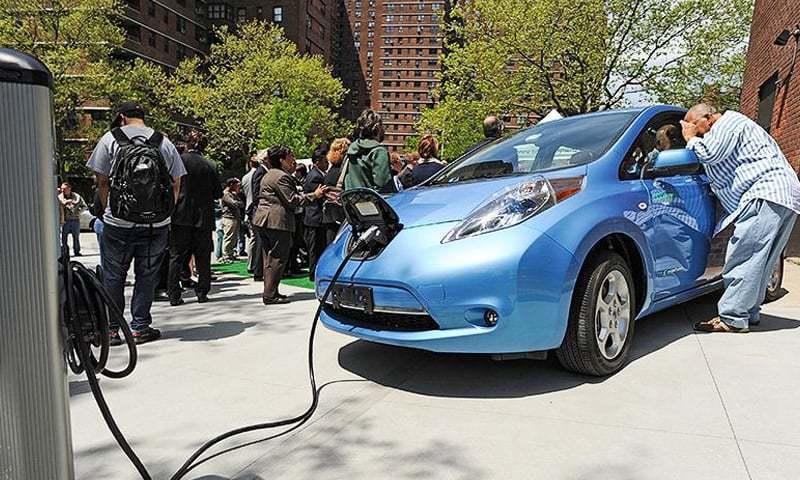A Carbon Tax in Pakistan
Pakistan’s Carbon Tax Considerations and Current Climate Solutions
In 2016, Pakistan ranked 5th in the world for having the most polluted air. This is due, in part, to the excessive carbon emissions from its rapid industrialization. In response to climate change and high pollution, Pakistan is considering the implementation of a carbon tax.
The carbon tax is a tax imposed by the government that requires carbon emitters (most often businesses) to pay a fee for each ton of carbon emissions they produce.
In this article, you will learn more about how Pakistan is considering a carbon tax, as well as the alternative solutions the country is taking to reduce carbon emissions.
Background Information: What Is a Carbon Tax?
Table of Contents
The Current State of a Carbon Tax in Pakistan
Alternative Solutions to Reduce Carbon Emissions in Pakistan
The Current State of a Carbon Tax in Pakistan
The primary sources of carbon emissions in Pakistan are energy, which creates about 46% of the country’s annual emissions, and agriculture, which creates about 41% of the country’s annual emissions.
In 2018, a national consultation spearheaded by the Collaborative Instruments for Ambitious Climate Action (CI-ACA) was held in Islamabad, Pakistan, where several private and public-sector representatives agreed that the implementation of a carbon tax in the country could help boost investments for sustainability and clean energy while reducing Pakistan’s carbon emissions.
In 2020, the Pakistani government established the National Committee on Establishment of Carbon Markets to study the country’s carbon markets and identify opportunities and challenges in delivering its Paris Agreement Nationally determined contribution (NDC). The 2015 Paris Agreement created nationally determined contributions, which are the climate actions each country commits to undertake in order to cut carbon emissions and adapt to climate change impacts. The Pakistan government committee considered the implementation of a carbon tax to help the country reach its NDC. Through the committee’s ongoing research, the implementation of a carbon tax in Pakistan is still being considered.
The carbon tax in Pakistan has yet to be implemented. The country does, however, have alternative options for dealing with the issue of excessive carbon emissions.
Alternative Solutions to Reduce Carbon Emissions in Pakistan
Instead of implementing a carbon tax in Pakistan, the country has mainly focused on alternative solutions to reduce its carbon emissions. Here are the recent updates on Pakistan’s climate actions to achieve nationally determined contributions.
Pakistan is planning to reduce 50% of its carbon emissions by 2030. Around 15% of this initiative would be domestically funded, and 35% would be supported by international grant finance for energy transformation, costing around USD$101 billion.
Ten Billion Tree Tsunami Programme
Pakistan is planning to expand its nature-based solutions through the implementation of the Ten Billion Tree Tsunami Programme. The project, which is supported by UNEP, started in 2019 and aims to conduct a four-year reforestation program by planting 10 billion trees. It also aims to increase Pakistan’s security and conservation efforts in their current protected areas. These projects might serve to boost eco-tourism, which could lead to greater job opportunities in the country.
Preventing New Coal Carbon Emissions
By 2030, Pakistan plans to phase out 60% of its carbon-emitting energy resources In favor of renewable energy. In order to achieve that, the country decided to implement a prohibition on new coal in power plants. The prohibition disallows the use of imported coal for power generation and stops all coal importation in the future.
Shifting to Cleaner Energy Practices
Pakistan aims to shift 30% of the country’s vehicles to electric cars. This is to help reduce extreme air pollution in urban areas. Since the plan was announced, local and international automobile manufacturers in the nation have begun developing electric and hybrid vehicles.

Source: Dawn News
Key Takeaways
The implementation of a carbon tax in Pakistan is still being considered and has not yet been implemented. Today, Pakistan’s solutions to reduce their emissions are focused mainly on nature-based or moratorium-based legislation. Here are the key takeaways about the state of carbon tax in Pakistan:
- Recently, multiple Pakistani government initiatives and committees on climate change have included a carbon tax as part of their considerations.
- Pakistan focuses on alternative solutions to reduce carbon emissions in the country. These include:
- Ten Billion Tree Tsunami Programme
- Preventing new coal carbon emissions
- Shifting to cleaner energy practices, including electric vehicles
